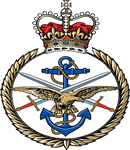Commemorated: | |||
| 1. Grave: | Baghdad (North Gate) War Cemetery | XV. E. 7. | |
| 2. Book: | The (1921) Masonic Roll of Honour 1914-1918 | Pg.115 | |
| 3. Memorial: | The (1940) Scroll - WW1 Roll of Honour | 33A GQS | |
Awards & Titles: | |||
Early Life :
Born in Dover to parents John Emmerson and Alice Maud Baker. Baptised at St. Mary the Virgin, Dover on 24th September 1871.In 1894, at the time of being initiated into Freemasonry he is recorded as residing at 20 Market Square, Dover.
Married Ann Matilda Manly 21st March 1906 in Bengal, India.
Family :
Ann Matilda nee ManlyEducation & Career :
Clerk (1894); Career Soldier
Service Life:
Campaigns:
- The First World War 1914-1918, World-wide.
| Unit / Ship / Est.: Indian Medical Department |
| Action : Mesopotamia |
At the outbreak of war the British, together with Indian troops, resolved to protect oil supply in the region by occupying the area around Basra at Abadan. This evolved into a series of campaigns towards Baghdad against the Turkish forces as Mesopotamia (modern Iraq) was part of the Ottoman Empire. Meetings in late 1914 and into 1915 led the Viceroy and Indian government at Simla to reconsider the limited involvement of troops and they decided to order further advances with a view to securing the Shatt-al-Hai, a canal connecting the Tigris and Euphrates river and potentially capturing Baghdad. The British government disagreed and wished to conserve forces for the Western front. The Viceroy was given permission to act as it wished, but told in no uncertain terms that no reinforcements should be expected.
The initial success experienced by the British and Indian forces quickly disintegrated in the face of Ottoman opposition. The Siege of Kut-Al-Amara began on 7th December with the besieging of an 8,000 strong British-Indian garrison in the town of Kut, 100 miles south of Baghdad, by the Ottoman Army. These campaigns produced few tactical benefits, indeed the catastrophic defeat at Kut in 1916 was a major setback. Badhdad was eventually taken in March 1917.
The conditions in Mesopotamia were dreadful. The climate, sickness and disease produced large losses in addition to battle casualties. About as many men died of disease as were killed in action. The Mesopotamia front was part of a strategy hoping for success at lower cost than the Western Front but no decisive victory was achieved.
Masonic :
| Type | Lodge Name and No. | Province/District : |
|---|---|---|
| Mother : | Cinque Ports No. 1206 E.C. | East Kent |
| Joined : | Lodge of Faith, Hope and Charity No. 1285 E.C. | Madras |
| Joined : | Mayo No. 1413 E.C. | Punjab |
| Joined : | Lodge Light in the Himilayas No. 1448 E.C. | Pakistan |
| Joined : | Malwa No. 1994 E.C. | India |
Initiated | Passed | Raised |
23rd May 1894 | 7th November 1894 | 5th December 1894 |
He was initiated into Cinque Ports Lodge in Dover, Kent in 1894, but resigned 2nd October 1895. Joined Lodge Light in the Himalayas 11th September 1900 from L1206 (resigned 30th June 1907) Joined Mayo Lodge No. 1413, Rawal Pindi on 2nd December 1900 from L1448. There is an entry that he Re-joined Malwa Lodge 15th October 1910, but also a resignation on the same date??. Joined Lodge Faith Hope and Charity 12th May 1913 from L1206. He was a Past Master.
Source :
The project globally acknowledges the following as sources of information for research across the whole database:
- The Commonwealth War Graves Commission
- The (UK) National Archives
- Ancestry.co.uk - Genealogy, Family Trees & Family History online
- ugle.org.uk - The records of the United Grand Lodge of England including the Library and Museum of Freemasonry
Additional Source:
- Founder Researchers : Paul Masters & Mike McCarthy
- Researcher : Bruce Littley

